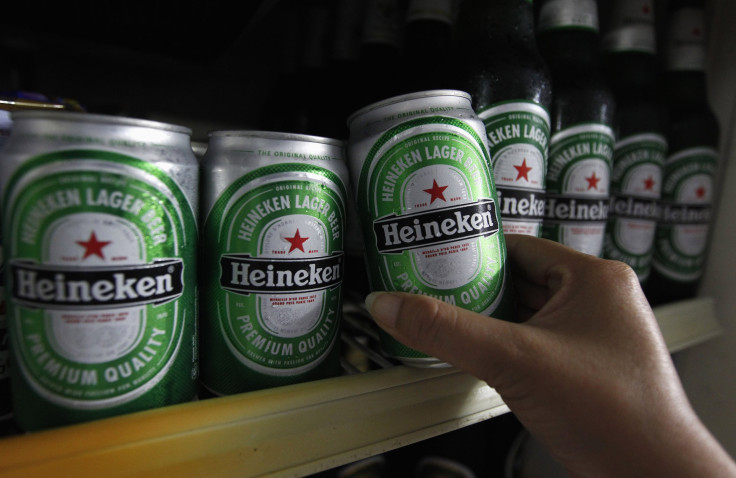Beer Has Health Benefits, Says...Heineken Exec

Is beer as healthy for you as milk? That's what the chief commercial officer of Heineken said to CNBC recently. When asked for his pitch, Alexis Nasard said to CNBC program host Steve Sedgwick, "There is everything which is healthy about beer."
When pressed for details, Nasard continued with his health pitch, proclaiming that a pint of beer has fewer calories than a glass of milk. He also said that it was a natural beverage, unlike many drinks sitting on supermarket shelves right now. "The other thing is beer is one of the few drinks that is purely natural; it is water, hops, barley and yeast, which is quite healthy," Nasard said.
This is not the first time that the beer maker has touted its health benefits. In the 1920s, the manufacturer's slogan was "Guinness is good for you". Marketers attempted to influence pregnant women to drink the beverage because it reputedly had high iron content.
In fact, Nasard's claims are not completely inaccurate. Beer's calorie content is quite low. According to the Beer Education Trust headquartered in the United Kingdom, a half-pint of pale ale contains 85 calories, while the same-sized glass of orange juice would tally 128 calories.
However, Heineken may not necessarily lay claim to the legacy of health. Women's Health reports that Heineken beer consists of 150 calories, though it is unclear whether the magazine found that calculation using a bottle, a pint, or a half-pint. The Centers for Disease Control and Prevention says that a cup of milk is also 150 calories, and that an 8-ounce glass of fat-free unflavored milk can be as little as 90 calories.
Still, Dr. Jack Edmonds, a general practitioner in London, said in a report issued by the Beer Education Trust, "It is not beer that makes you fat but the lifestyle and eating habits which may go along with beer drinking...However this doesn't mean we can all rush out and drink huge amounts of beer...All the benefits of beer - health, social and psychological - are only enjoyed when beer is drunk in moderation and preferably with a low alcohol content."
Researchers have been mixed on the effect that beer and alcohol can have on health. Some studies have found that moderate drinking, a drink a night for women and two drinks a night for men, can help lengthen life and decrease the risk of heart disease. But other studies have found that even moderate drinking can reduce the production of new brain cells, heavy drinking has been linked to heart problems, and alcohol in any quantity has been correlated with an increase in breast cancer for women.



























